The IT sector in Bulgaria is booming, while many job offers remain empty. A small software school in the little town Vratsa is educating people from all ages to be able to work in the striving sector – and thereby be able to stay in Bulgaria and even their hometown.
It’s a warm Saturday in the town of Vratsa in the north-west of Bulgaria, one of the poorest regions in Europe. While others are enjoying their weekend, in a former kindergarten building two rooms are occupied by IT students from all ages. In one course the students work on their Java skills, while in the other room digital marketing campaigns are discussed. The posters on the wall are still from 2005, on the window you find an old painting of Scrooge McDuck – but something new and hopefully prosperous is kicking off here.
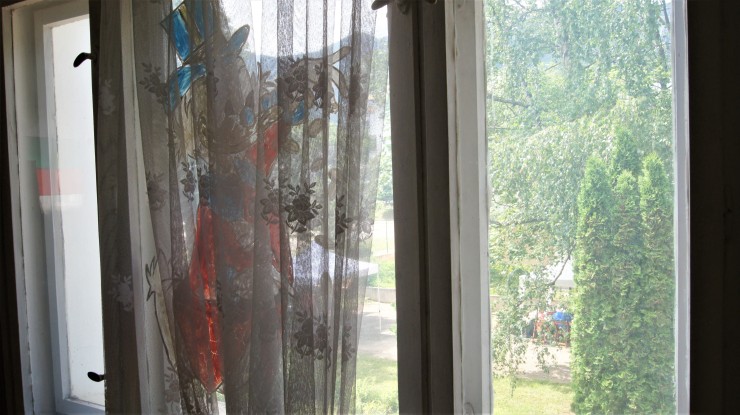
While in many sectors the well-educated people leave Bulgaria to find a job, the situation in the IT sector looks different in the country. According to the IT expert and former ICT journalist Hristo Laskov in the last decade the market has been developing exponentially. “It is a very prosperous market, but if I have to sum up the biggest challenges, it would be the lack of people,” Laskov says. He describes it as an odd situation – facing high unemployment in the country, while thousands of well-paid jobs remain empty. The Software School in Vratsa is one of many academies who are working against this problem.
The strength of Bulgaria in the IT sector has mainly two reasons, says Dobroslav Dimitrov, co-founder of two IT companies and an IT academy: During the Soviet times Bulgaria was specialized on that sector and was producing software for the whole Eastern bloc. Furthermore mathematics has a great tradition in Bulgarian high schools. “Because of that the industry can count on people who have algorithmic thinking, even though they have never seen codes before,” says Dimitrov. Today the whole sector accounts for around 6 percent of the GDP while software represents half of it.
Dimitrov sees the lack of people in the sector as a European, even a world-wide phenomenon. For his companies and others he co-founded an IT academy to train people. “There is a reason why we are growing as an industry, we are not waiting for the government, we are solving the problem ourselves,” he says. While the government is slow, the tech sector can act very fast. For Dimitrov that’s the ultimate solution – the private sector knows exactly what is needed and is able to react very quickly.
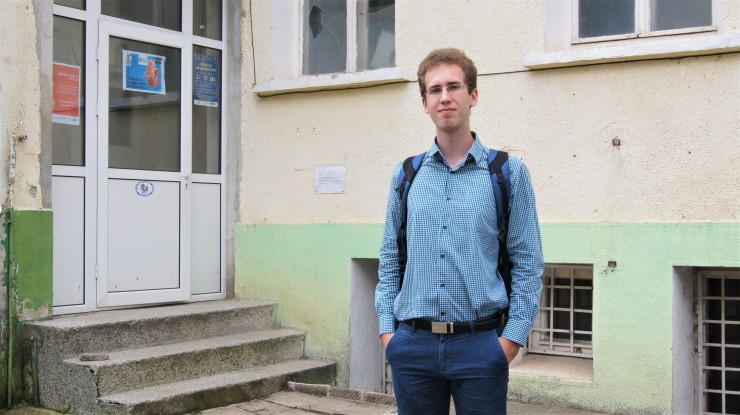
Next to teaching software to people, the idea of the Vratsa Software School is to give the people the opportunity to have interesting and well-paid jobs in their hometown, co-founder Teodor Kostadinov explains. “Because of the great demand the standard of living of the average IT developer in Bulgaria is on par with any Western colleague,” says Dimitrov. For are software developer there is no reason to leave the country or even the hometown – because the opportunities and the outlook for the future is bright in Bulgaria. “Our industry is a bright light at the end of the tunnel,” says Dimitrov. He himself saw only one of his colleagues leaving the country – but due to personal, not monetary reasons.
While Teodor was studying Software Engineering in Sofia, he felt bored and therefore enrolled in an academy for practical programming. In his first years of university he felt a lack of practical training in software skills. “When it comes to job skills, the academies of private companies are better by a mile,” says Dimitrov. While taking classes in the academy, Teodor quickly realized how easy it was to start such a course: “You just need some people and a projector.”
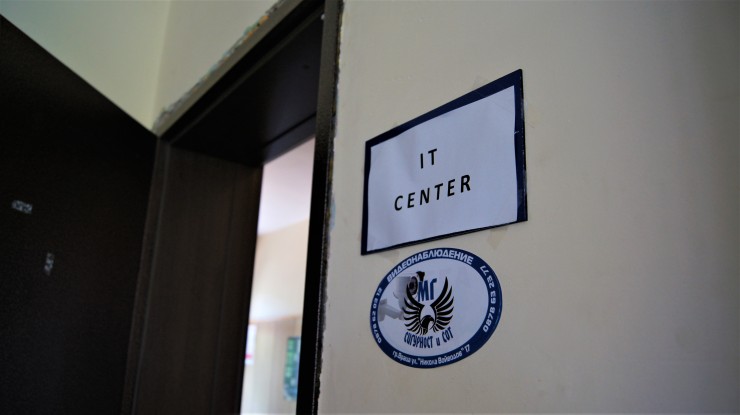
The logical consequence for him was to go back to his hometown and ask the headmaster of his old school in Vratsa. While she was very much into the project, she told him that she had a similar request just the week before. “She gave me his number and I called him, and now this is my other partner,” Teodor says. “We didn’t know each other, it was the idea, that brought us together.” The project kicked off four years ago and attracts around 60 to 70 students per year, which visit the weekend courses offered by the school.
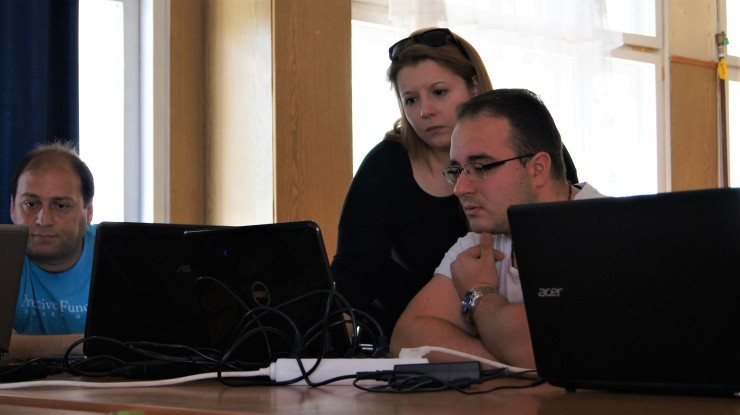
The Java course is filled by people from very different ages and different sectors. While the youngest participant Martin Cenov is still a student, in the rows you find a law graduate, an engineer, an accountant and a worker from the local water company. “The IT in the world is growing and everything is connected with IT,” explains Beyan Mitev, a law graduate, why he chose to participate in the course. For him Vratsa Software School is an opportunity: “It’s the only way how we can stay in Vratsa and we can earn more money,” Beyan says. Another student, Yasen Regwyn agrees: “For now this is my reason to stay and work here, because it gives me a job.”
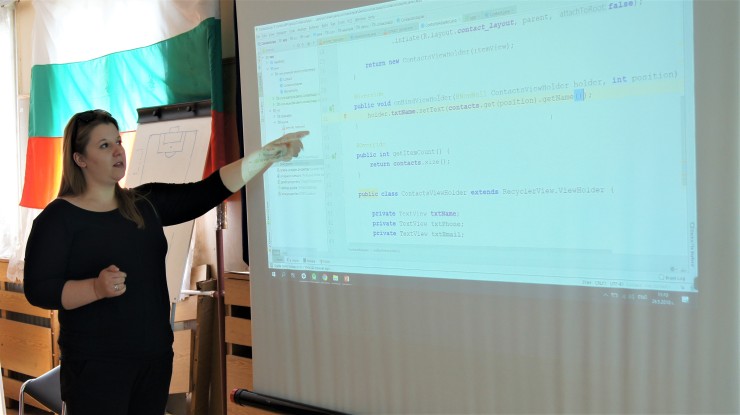
Their teacher on this Saturday is Lilly Mihaylova. “Everything started for me in 2015, when I found out about Vratsa Software School,” she says. She began as a participant, before working as a software developer and teacher at the school. Her former job didn’t allow her to earn enough money for a living in Vratsa. “Without IT I maybe wouldn’t be able to stay here,” Lilly concludes. “I would probably be in Sofia, if Vratsa Software wouldn’t exist.” But she wants to stay at her home place – “it’s a really beautiful city and the life here is calm, I like it.”
Co-founder Teodor also has the wish to live in Vratsa, which was one of his personal main reasons of creating the course. “I really feel connected to my hometown with its people, they may be angry sometimes, they may be hard to get to know, but they are my people and I understand them,” he says. “I’m part of this community and as it I want to give back to it in some way.” The pleasure to pass on his knowledge and make something meaningful in the little community is what drives the project. At the same time the Software School provides an important foundation for the community. Dimitrov sees that many jobs are in danger because of automation. “All those people who work today, they may have to work something else tomorrow,” he says. “There has to be places like us [academies] that actually help them switch.”
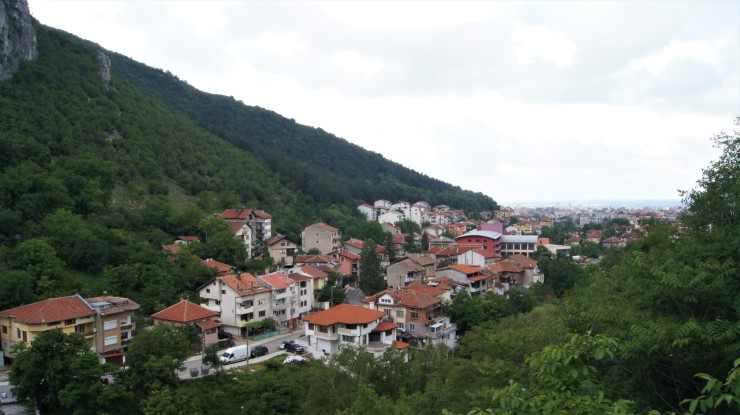
Before the Vratsa Software School opened, there were no IT-related companies in the little town. Today three companies with 10 to 15 workers each developed, apart from that many alumnis work as freelancers. After finishing the one-year course the students are able to start an internship in the sector. According to Laskov after leaving an academy nobody is completely ready to work in the sector, so companies still have to invest. “But this investment is cheaper for the companies than to wait for the next round of developers that come out from the technical university,” he says.
Next to IT companies growing in Vratsa, numbers prove that the model is working. In the first year the founders won a price endowed with 30,000 Levs (equivalent to 15,000 Euro), which they invested in getting the IT centre and equipping it. “Now we kind of turned the wheel,” says Teodor. They have trained so many people that now work in the field in Vratsa, that some of them earn those 30,000 Levs – per month. “And they are spending it here in Vratsa, because they live here,” Teodor concludes.
According to IT expert Laskov, you can easily get a European salary in the IT sector in Bulgaria, while the cost of living is incomparably lower. “In Germany freelancers get around 80 to 90 Euro per hour, if here you get half of that, you are going to live like a king,” he says. Many of his friends returned to Bulgaria because they realized that they can have a better living standard and at the same time be surrounded by their family and friends. The student Yasen is seeing those chances for himself: “It’s full of opportunities and of course the work is very good, because you only need a laptop and internet.”
It just needs a laptop and internet to work – for Yasen Regwyn (right) IT is a sector with many easy opportunities in his hometown.
For the future the Vratsa Software School is planning to add more courses and is working on creating a co-working space in the little town between the mountains. “Happiness should be the main goal in what you do,” Teodor says. Teaching and passing on knowledge is giving him this pleasure. At the same time allowing people to stay in their hometown and earn a decent salary just adds to the story.

